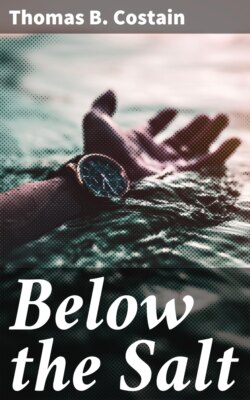Читать книгу Below the Salt - Thomas B. Costain - Страница 21
На сайте Литреса книга снята с продажи.
1
ОглавлениеTable of Contents
Of all the unusual places that Senator O’Rawn chose to visit in England, two remained most firmly fixed in John Foraday’s memory.
The first was a stretch of flat green ground along the south side of the Thames in close proximity to Windsor. This meadow was bounded on the south by a wooded hill or ridge, with a ravine running along the base of the high land. John looked out of the car window and felt something take possession not only of his mind but of his heart as well.
“Runnymede,” he said.
“Why do you think that?” asked the old man, leaning out of the window on his side of the car. “I’m sure there was no mention of our coming here today.”
“There’s a sense of history about the place. I felt something stir deep down inside me. And besides, this is just about where it should be.”
“You’re right, my boy. This is Runnymede. I wanted you to see it. I wanted very much to see it myself.”
The car came to a stop at a point where two cottages faced each other across the paved road. The senator got out and stood with uncovered head, gazing intently about him.
It was a glorious day. The sky was blue and clear, the sun was pleasantly warm. A breeze stirred the tops of the trees along the ridge and soon had the white locks of the eloquent senator standing up on end. A swarm of crows had settled down on the raised land and were keeping up a continuous cawing. “History says there were crows at Runnymede on the day when King John signed the Charter,” stated the old man. “Did they caw in derision of that very bad man who had been forced so reluctantly to his knees? I’ve always liked to think that they did. But why are they keeping it up? Mankind still enjoys the benefit of what was done that day, so what we should hear is a chorus of praise. I guess the truth of the matter is that crows have a poor opinion of men in general and raise their raucous voices whenever they are near us.”
An official had come out of one of the cottages and seemed disposed to give them whatever information they might desire. The old man asked, “What is that raised land called?”
“Cooper’s Hill, sir.”
“A recent name, no doubt.”
“Oh yes, sir. Perhaps not more than a century old.”
“Isn’t it true that the ravine running along the base of Cooper’s Hill was once the bed of the Thames?”
“I believe so, sir. But that was a long time ago.”
“Then it’s quite probable that the land we are standing on was an island when the Charter was signed?”
The official nodded.
“The historians don’t seem at all clear on the point. But it’s certain in my mind that the channel over there was once filled with water.”
“But,” declared the official, “that channel has been dry for—for centuries, sir.”
